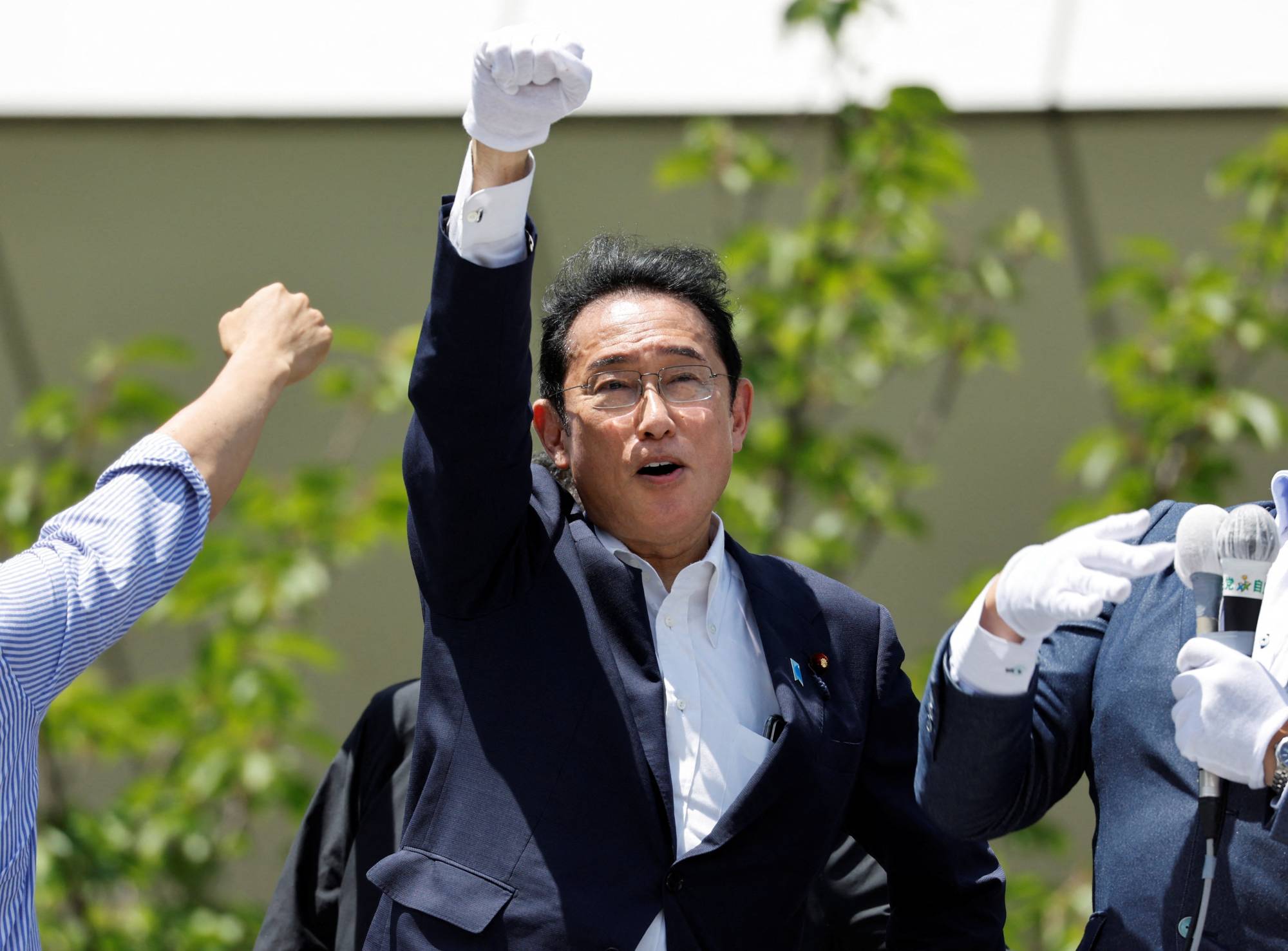As the war in Ukraine and the post-pandemic return of consumer demand fuel resource shortages and global price spikes, trouble could be in store for Fumio Kishida as he seeks to build on a positive start to his time as prime minister with a convincing victory in the July 10 Upper House election.
Since the start of Russia’s Feb. 24 invasion of Ukraine, a rapidly weakening yen combined with a precipitous rise in consumer prices are expected to add what some economists estimate to be an additional ¥60,000 ($458) to the average Japanese household’s annual expenses. There are now higher price tags on over 10,000 different products, while the nation’s currency tumbled on Wednesday to a 24-year low of ¥136.71 to the dollar.
Despite these mounting economic issues, the latest pre-election polls project Kishida's ruling Liberal Democratic Party will secure over 60 of the 124 seats up for grabs — three times as many as their closest competitor — suggesting that a convincing Upper House victory for the party is all but assured.



















With your current subscription plan you can comment on stories. However, before writing your first comment, please create a display name in the Profile section of your subscriber account page.